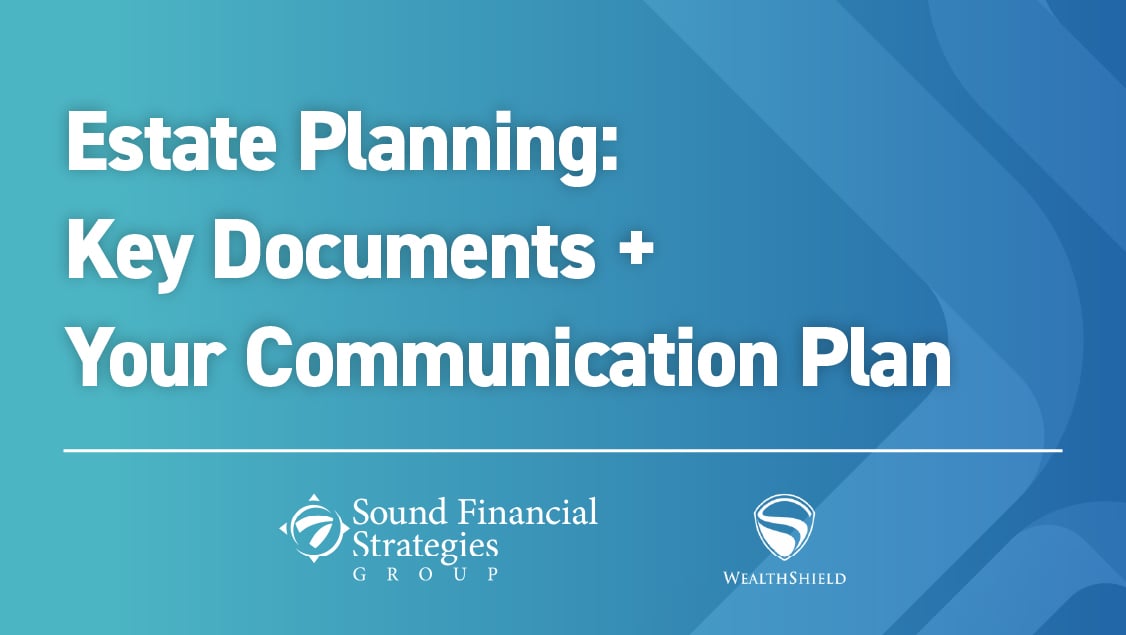2 min read
Estate Planning: Key Documents + Your Communication Plan
Jul 23, 2024 1:56:47 PM

Estate planning is something that comes with a lot of questions. One I hear often is, "Do I even have an estate to manage?" This can range from simple concerns to more complex issues like avoiding estate taxes.
Let me clarify right off the bat—if your total net worth is less than $12 million, you probably don't need to worry about estate taxes. For those above that threshold, we should definitely have a conversation.
🔎 Related: Why Is Estate Planning So Important? (+ Examples)
We aimed to keep things straightforward by addressing the basic questions and tools you'll need. As I've said before, simple and solid actions usually work best, but as your financial situation grows more complex, so should your planning.
Key Estate Planning Documents You’ll Need
Will
A will is essential for specifying how your assets should be distributed after your death. It's shocking, but over 65% of Americans die without a will, which means the state decides who gets what. Do you really want to leave that up to chance?
Power of Attorney
This document designates someone to manage your financial affairs if you become unable to do so yourself. It's crucial for ensuring your bills are paid and your investments are managed if you're incapacitated.
Healthcare Directive
Similar to a power of attorney but for medical decisions. This includes instructions on whether you want life-sustaining treatments if there's no hope of recovery.
Living Trust
A living trust can be altered during your lifetime and allows your assets to be managed on your behalf. It can also help avoid probate, making it easier for your heirs to manage your estate.
Why These Documents Matter
Early in my career, I worked with a family who didn't know who we were because their mother had Alzheimer’s. They found a life insurance policy that was split among the grandchildren, leaving out the children entirely. It created a lot of tension.
🔎 Related: How much does estate planning cost? (tips + examples)
This experience illustrates what we talk about so much in estate planning — it’s of the utmost importance that you have a clear and communicated plan regarding your wishes. Because there are no do-overs once this ball starts rolling.
Real-life Complications
Mark raised an excellent question during this conversation about what assets a will covers. Ralph Yelverton, our attorney, explained that a will governs individually owned property without joint ownership or a beneficiary designation. For example, a jointly owned home or an IRA with a named beneficiary bypasses the will.
Making Your Plan Clear
Your estate plan should be clear and understandable to those who will carry it out. This might be someone who is currently in high school or even a professional who isn't practicing yet. The simpler and clearer your instructions, the better.
Steps to Take
Review Your Beneficiaries
Make sure your beneficiary designations are up to date. This includes life insurance policies, retirement accounts, and any other assets with named beneficiaries.
Draft Key Documents
Ensure you have a will, a power of attorney, and a healthcare directive. These are foundational to a good estate plan.
Communicate Your Plan
Make sure your family knows your plans and where to find your documents. This avoids confusion and ensures your wishes are followed.
Begin the Estate Planning Process Now
I encourage you all to think about these issues and start your estate planning if you haven’t already. It’s not just about the money; it’s about making sure your loved ones are taken care of and your wishes are honored.
Thanks for reading, and as always, feel free to reach out if you have any questions or need assistance with your estate planning.
